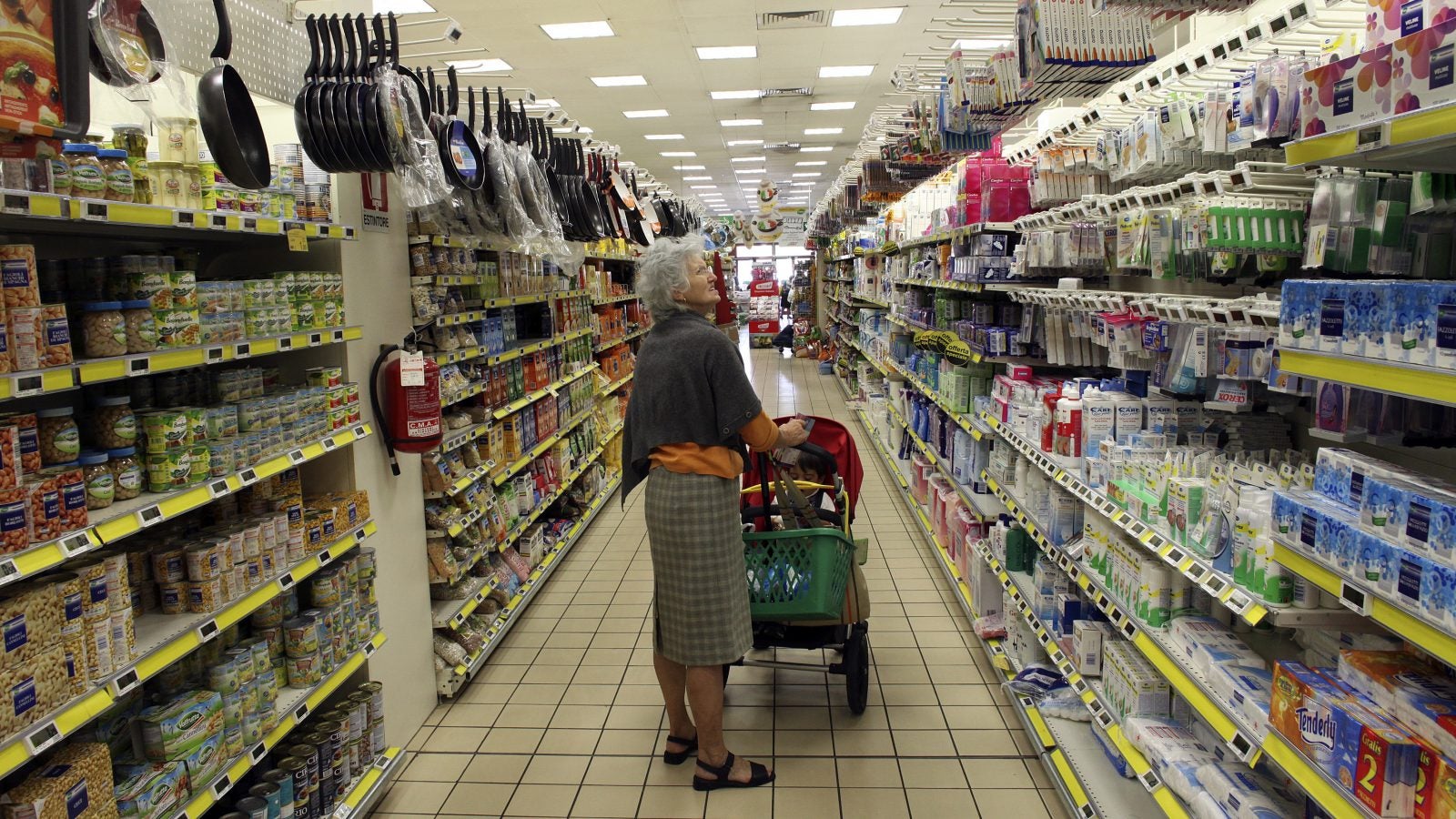A study says supermarkets can help older people fight loneliness by creating “slow lanes”
In an age of helpful robots and of proliferating services, we’re getting really good at making life more optimized, smoother, and more efficient. But new research from the UK shows there are times when what we need isn’t less friction and more speed. It’s slowness—especially when it comes to older people.


In an age of helpful robots and of proliferating services, we’re getting really good at making life more optimized, smoother, and more efficient. But new research from the UK shows there are times when what we need isn’t less friction and more speed. It’s slowness—especially when it comes to older people.
The researchers in food and public policy from the University of Hertfordshire suggested that supermarkets should introduce “slow lanes” for the elderly, for whom shopping for food is part of a social experience that new technology is eroding.
Automated check-outs and efficient service ignore a vital community aspect of food shopping, and not just in the UK but across developed economies, the researcher said. “I think it’s a universal problem,” said professor Wendy Wills, who led the study.
Older people want to remain active but can feel intimidated because they “know they’re really slow,” she said. “And they want staff that are going to spend time talking to them…spending some time rather than rushing them.”
Similarly, said Wills, the idea that online food-shopping is a way to help older, less mobile people ignores the need for people to come together.
The team just released the findings of research into how older people shop for food, based on ethnographic research with 25 households of people between the ages of 60 and 93. That’s a small sample, but Wills explained that it involved spending hours with each participant, accompanying them on shopping trips, to lunch clubs, and to allotments, and a host of data including journals, video, and photos.
None of the participants used automated check-outs, and none shopped for food online, though many of the households were proficient users of technology for other purposes.
And it seems the “slow lanes” idea could actually catch on, as supermarkets begin to take responsibility for their place in the architecture of local communities. Wills said several local trials had already taken place, and more than one large British supermarket chain had expressed interest in working with the university as it continues with the research.
Small changes can make a huge difference to a person’s quality of life. “People get so much more than just getting the food” when they shop, Wills said. “It is about interacting.”